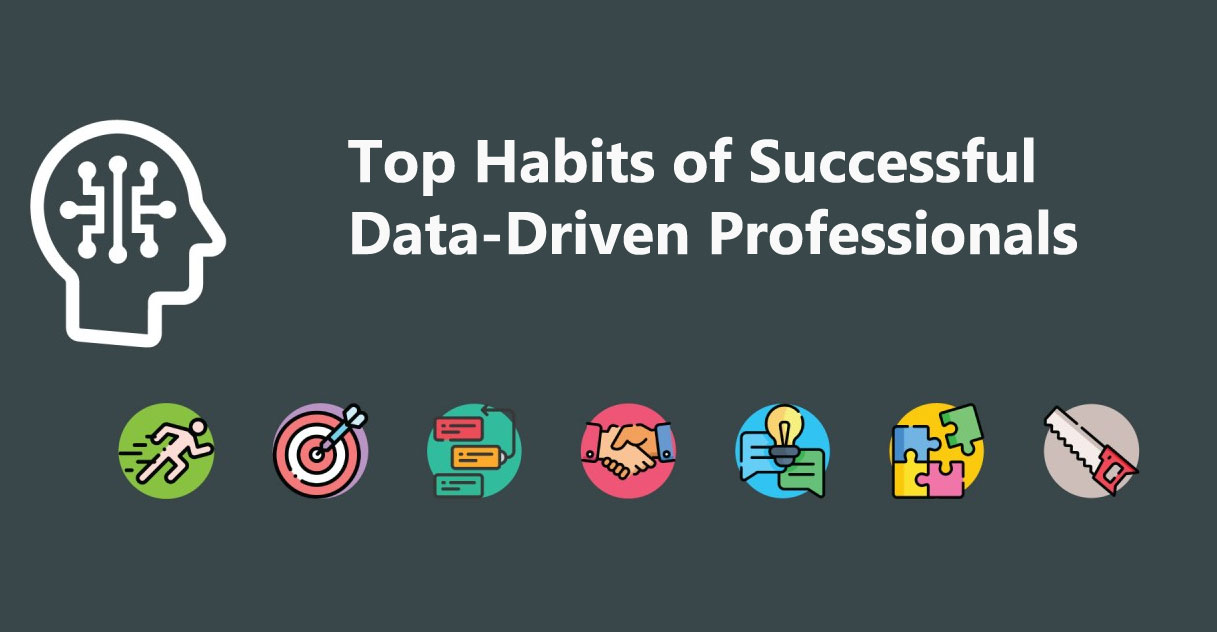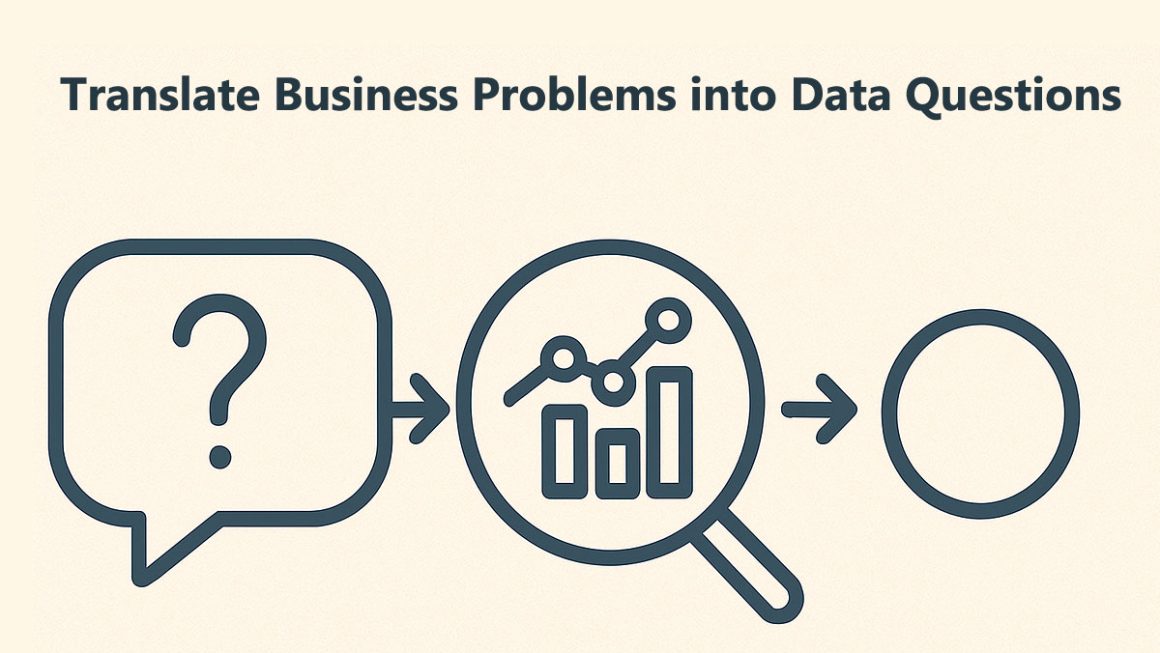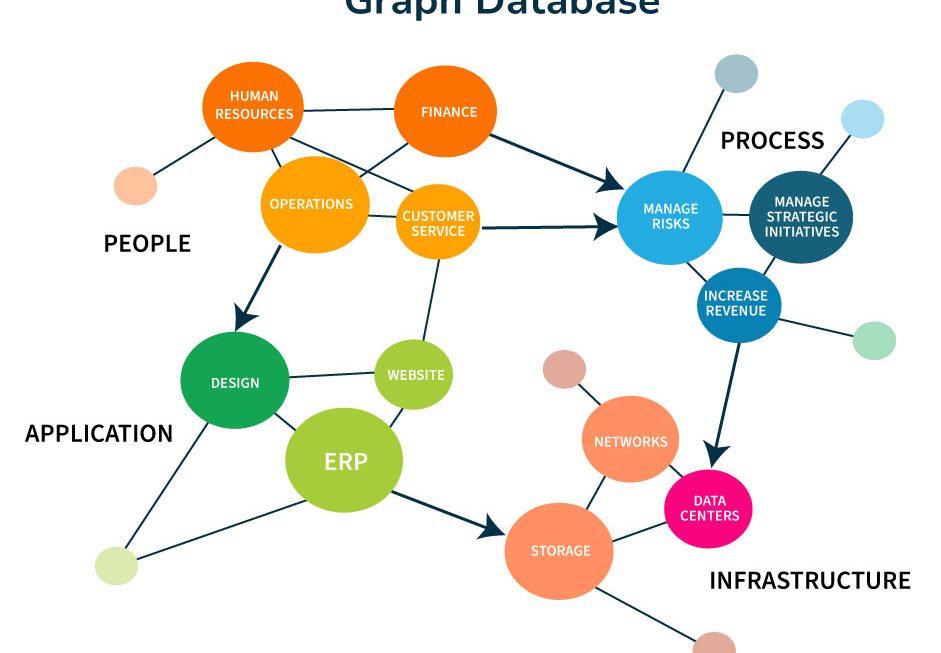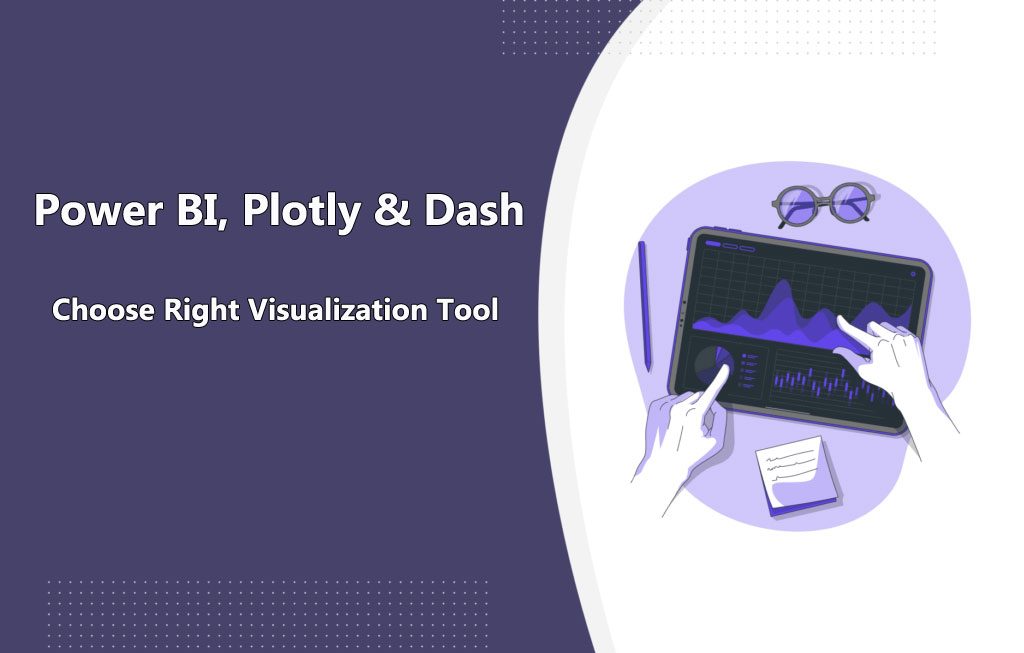Across the world, companies are increasingly looking for people who are data-driven. Companies are looking for people who can make sense of data, communicate in layman’s terms, and effectively use data to solve real-life issues. However, mastering the skill set behind this field of study is not just a matter of tooling. It is about working on good habits that enable you to think straight, work smart, and deliver value.
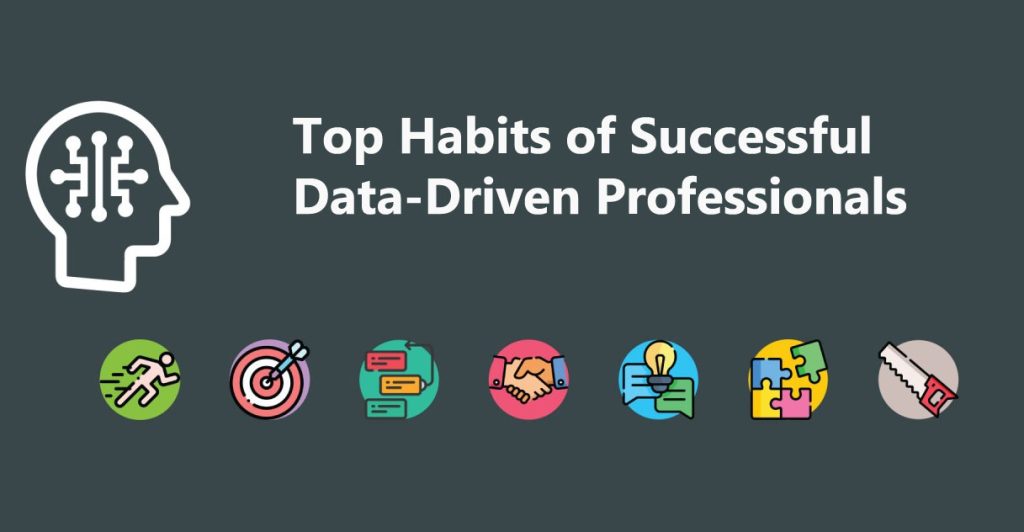
4 Top Habits of Successful Data-Driven Professionals
Here are four data habits that successful data professionals share, and everyone else should aspire to cultivate.
Strategic and Business Focused Habits
-
1. Focus on Business Value
Business goals always come first for the most successful data people. It does not begin with dashboards or code. They start with understanding.
- What does the company want?
- How will my work help the business grow?
- Which part of the income or customer journey will this affect?
They analyze customer behavior, pinpoint friction points, and find out what problems matter most. Data work becomes meaningful and brings about real change when it is aligned with business value.
-
2. Strong Problem-Solving Approach
Where a data professional provides the most value is when they are solving business problems. Top professionals establish a definition of success before performing any analysis. They ask
- What do we want to solve for?
- What action will be taken from this?
- What result should this work create?
They identify the core issue with logic and develop solutions that directly assist sales, marketing, finance, or operations teams.
-
3. Strategic Thinking About Data
Anyone can collect data. Just strategic-minded individuals gather appropriate information. Great data professionals have a sense of the data to analyze, how to analyze it, and what insights are actually relevant.
They do not make reports to show activity. They generate insights that can help in making crucial decisions. They think
- What data provides the most insight?
- What insight will change the business performance?
- So, how can this be used by the non-technical teams?
It is this ability to think ahead that makes them trusted advisors.
Technical and Analytical Habits
-
1. Continuous Learning
Technology keeps changing. Every few months, there are new tools, new updates, and new techniques. Successful data professionals stay updated. They learn regularly. They spend weeks learning new features, theorizing new techniques, and refining their fundamentals.
- Sometimes they focus on SQL.
- Other times, they test out different ways to analyze.
- Other times, they pick up some new visualization tricks.
- Occasionally, they study real-life case studies.
They are not a task; learning becomes their habit.
-
2. Mastering Core Foundational Skills
Strong fundamentals are more powerful than any latest shiny object in the data world. Fast-growing professionals have a very good command of SQL. They are aware of table relationships, joins, optimization of queries, and fetching correct data, etc.
They are familiar with Excel basics, statistics, and logic in conjunction with SQL. This helps them provide solutions for complicated problems easily.
-
3. Attention to Detail
Data work demands accuracy. Just one type of mistake alters the full result. We do not know data; even quite successful professionals check their data. Ensuring integrity is expected in other areas as well, such as validating columns, verifying calculations, and double-checking results.
This habit builds trust. When people are aware of your clean, reliable work, you don’t have to convince them to listen to you.
-
4. Practice Using Real World Projects
While theory is necessary, it makes true professionals out of practical experience. What the best data experts practice with: real datasets and real business problems. You can find them working on projects such as
- sales forecasting
- customer segmentation
- marketing insights
- financial trends
- operational performance
Through these hands-on projects, they learn about the appearance of data in real-life contexts and the translation of raw numbers into valuable insights. By working on real projects, you also get to expand your portfolio, and this ensures you land better job opportunities.
Communication and Collaboration Habits
-
1. Simple and Effective Communication
One of the biggest habits of data professionals who really succeed is to articulate insight in non-technical language. Not everyone who works at a company knows the technical lingo. Hence, they keep their message simple.
- Their focus on.
- What is the data showing?
- Why is it important?
- What next steps to take?
The way they communicate eliminates ambiguity and enables teams to make quick, solid decisions.
-
2. Telling a Story with Data
Sharing data is not enough. Data becomes stories in the minds of successful professionals. Their charts are clean, and only visual representations of significant numbers taken from unedited, unspun statements help guide people. These stories make data more humane, relatable, and therefore, translatable into action.
It makes sure that with a good story, people would understand the message in seconds without a data background.
-
3. Building a Strong Professional Network
Successful professionals never work alone. They mingle with other professionals in the area. They absorb into communities, listen to webinars, talk with mentors, follow experts, and engage in discussions.
- Networking helps them
- Learn new ideas
- Discover new tools
- Get job referrals
- Grow faster in their career
You talk to people, and your understanding expands.
Proactive and Consistent Habits
-
1. Proactive Review of Metrics
Good data people don’t wait for someone to tell them there is an issue. They monitor important performance trends and metrics. They detect problems early and recommend changes before they become a bigger issue.
It makes them reliable, and it saves the businesses from making mistakes.
-
2. Curiosity and Continuous Exploration
All great analysis begins with curiosity. The top data people will always want to know why. They keep asking questions like
- Why did sales drop?
- Why did customers change their behavior?
- What pattern is behind all these numbers?
This sense of curiosity enables them to uncover insights that slip past others.
-
3. Taking Full Ownership
Taking ownership is one of the most powerful habits of successful professionals. They do not simply halt at reporting. They walk through the entire process from beginning to end.
- They understand the problem.
- They analyze data.
- They present insights.
- They follow up to make sure something will be done.
- And they measure the outcome after implementation.
This is the sign of responsibility and leadership.
Conclusion
The tools are important, yes; however, success in the data field is all about having the right habits. If you focus on business value, talk the business language, keep on being inquisitive, and learn more, then you automatically become a high-performing data professional. These habits make you grow quicker, create better opportunities, and create an actual change.
If you are looking to build these habits with the right support & true industry exposure, ConsoleFlare is here for you. ConsoleFlare gives practical hands-on training, real-world projects, the easiest method of teaching, and 100% placement assistance until you are placed. To start, they offer Data Analytics Course and Data Science Course that guide you in a straightforward way through the learning process, even if you are a complete beginner.
If you have the right habits and the right training, your data career can give you wings and become aspirational much quicker than you think.
For more such content and regular updates, follow us on Facebook, Instagram, LinkedIn


